E-bikes enhance last-mile commuting efficiency by offering a fast, affordable, and eco-friendly alternative to traditional transport modes. Their electric assistance allows riders to maintain speed with less effort, navigate congested urban areas, and reduce travel time and costs. This makes e-bikes a sustainable solution for overcoming the last-mile challenge in cities, improving urban mobility and reducing pollution. How Do Step-Thru Ebikes Benefit Seniors?
What Is the Last-Mile Challenge in Urban Transportation?
The last-mile challenge refers to the difficulty commuters face traveling the final segment from public transit stops to their ultimate destinations. This short distance often involves delays, high costs, and inconvenience, leading many to rely on cars or taxis, which worsen traffic congestion and pollution. Addressing this challenge is essential to creating efficient, sustainable urban transport systems.
Urban areas see about 25% of trips under 2 miles, a perfect distance for e-bikes to fill the gap. By bridging this last-mile efficiently, e-bikes reduce reliance on cars, cut emissions, and save time, making city travel smoother and greener.
How Do E-Bikes Improve Last-Mile Commuting Efficiency?
E-bikes improve last-mile commuting by offering quick, flexible travel that bridges gaps between public transit and final destinations. They reduce reliance on cars, avoid traffic congestion, and eliminate parking hassles. With electric assistance, riders cover distances faster and with less effort, making short urban trips more practical and enjoyable. Compact designs and easy maneuverability further enhance convenience, allowing riders to save time and reduce overall commuting stress.
E-bikes improve last-mile commuting through several key advantages:
- Speed and Maneuverability: E-bikes can travel up to 28 mph, like the TST® Buddy Pro 20" Full Suspension Folding E-Bike, allowing riders to bypass traffic jams and take direct routes inaccessible to cars. Their compact size lets riders use bike lanes, narrow streets, and shortcuts, slashing commute times.
- Reduced Physical Effort: Electric pedal assist helps riders maintain consistent speeds without fatigue, making daily commuting feasible for longer distances and varied terrains.
- Easy Parking and Storage: Smaller than cars, e-bikes require less parking space and can be stored conveniently, saving time and hassle.
These factors combine to make e-bikes a superior choice for last-mile commuting, especially in dense urban environments where traffic and parking are major issues.
Why Are E-Bikes a Sustainable Solution for Urban Mobility?
E-bikes produce zero direct emissions, consuming only electricity, which can come from renewable sources. This drastically cuts the carbon footprint compared to cars or taxis used for short trips. By replacing motorized vehicles on last-mile journeys, e-bikes reduce air pollution and noise, contributing to healthier cities.
Moreover, e-bikes encourage active transportation, improving public health by integrating moderate exercise into daily routines without excessive strain. This aligns with broader sustainability goals by promoting greener, healthier urban lifestyles. Also check TST Ebike – High-Performance EBike Series
Which TST EBike Models Are Best for Last-Mile Commuting?
TST models like the Stealth 20 and Venture 24 excel in last-mile commuting. These e-bikes are lightweight, foldable, and equipped with responsive pedal-assist systems for easy navigation through urban environments. Their compact size allows seamless storage on public transit or at work, while strong batteries ensure reliable range. These features make them ideal for efficient, flexible last-mile travel in busy city settings.
TST EBike offers models tailored to different commuting needs:
| Model | Wheel Size | Terrain Suitability | Key Features |
|---|---|---|---|
| TST® Buddy Pro 20" Full Suspension Folding E-Bike | 20-inch | Urban, folding for portability | High speed (up to 28 mph), full suspension for comfort |
| TST EBike 26-inch Model | 26-inch | Rough terrains like snow and sand | Robust tires, durable frame for off-road |
| TST EBike 27-inch Model | 27-inch | Daily commuting and mountain biking | Balanced for speed and stability, versatile |
For urban last-mile commuting, the TST® Buddy Pro 20" stands out due to its folding design, speed, and suspension, making it ideal for navigating city streets efficiently and comfortably.
How Do E-Bikes Save Time and Money Compared to Other Transport Modes?
E-bikes significantly cut commuting costs by eliminating fuel expenses and reducing maintenance compared to cars. Charging an e-bike costs only pennies per mile, and parking fees are negligible or nonexistent. Over time, these savings add up, making e-bikes a budget-friendly option.
Time savings come from the ability to avoid traffic congestion, take shortcuts, and park quickly. In cities, e-bikes often beat cars and public transit for trips under 5-15 km, especially during rush hours. The electric assist ensures riders maintain speed without fatigue, further enhancing efficiency.
Chart: Cost and Time Efficiency Comparison of Last-Mile Transport Options
| Transport Mode | Average Speed (km/h) | Cost per Trip | Parking Ease | Environmental Impact |
|---|---|---|---|---|
| E-Bike | 25-28 | Low | Easy | Very Low |
| Car | 15-20 (traffic) | High | Difficult | High |
| Public Transit | 10-20 (varies) | Medium | N/A | Moderate |
| Walking | 5 | Free | N/A | Zero |
What Are the Environmental Benefits of Using E-Bikes for Last-Mile Commuting?
E-bikes produce zero tailpipe emissions, helping reduce urban air pollution and greenhouse gases. Compared to cars, their carbon footprint is minimal, especially when charged with renewable energy. They also reduce noise pollution and lessen traffic congestion by taking up less road space.
By replacing short car trips with e-bike rides, cities can lower overall emissions, contributing to climate change mitigation and improving public health.
How Do E-Bikes Enhance Urban Mobility and Traffic Flow?
E-bikes’ ability to use bike lanes and smaller roads reduces the number of cars on streets, easing congestion. Their agility allows riders to avoid gridlocks and maintain steady speeds, improving overall traffic flow.
Additionally, e-bikes require less parking space, freeing up valuable urban land for other uses. This contributes to more efficient use of city infrastructure and better mobility for all residents.
Buying Tips for Choosing the Right E-Bike for Last-Mile Commuting
- Assess Your Terrain: Choose a 26-inch TST EBike for rough terrains like snow or sand; opt for a 27-inch model for daily urban commuting or mountain biking.
- Consider Portability: Folding models like the TST® Buddy Pro 20" are ideal for mixed-mode commutes involving public transit.
- Check Battery Range and Speed: Ensure the e-bike supports your commute distance and desired speed (up to 28 mph for TST Buddy Pro).
- Look for Comfort Features: Suspension and ergonomic design improve ride quality on city streets.
- Evaluate Maintenance and Warranty: Choose brands like TST EBike that offer strong quality control and customer support.
As cities grow and traffic increases, the last-mile commute—the final stretch from transit stops to destinations—becomes more frustrating. Traditional transport can be slow, costly, and harmful to the environment. Electric bikes (e-bikes) offer a faster, affordable, and sustainable alternative for overcoming this challenge, making commuting easier and more efficient.
In this blog, we'll explore how e-bikes enhance last-mile commuting and highlight the benefits of choosing electric bikes for commuting.
E-bikes are revolutionizing urban commuting, making it faster, cheaper, and more sustainable.
The Last-Mile Challenge in Urban Transportation
Urban commuters often face the "last-mile" problem, where public transit doesn't fully cover the distance to their final destination. This gap leads to reliance on cars or inefficient alternatives, contributing to traffic congestion and increased emissions. Addressing this challenge is crucial for improving urban mobility and reducing environmental impact.
The last-mile problem refers to the final segment of a journey, typically the distance between a public transport stop and the commuter’s final destination. This short yet crucial stretch can often be the most time-consuming, inefficient, and costly part of a commute. In densely populated cities, it’s common for people to rely on cars or taxis for the last mile, both of which contribute to traffic congestion, environmental pollution, and high transportation costs.
According to the International Transport Forum (ITF), about 25% of urban trips are less than 2 miles, making them prime candidates for e-bike commuting. With the rise of electric bikes, however, commuters can now bypass traffic and cut down on the cost and time spent in this final leg of their journey.
Why E-Bikes Are Perfect for Last-Mile Commuting
E-bikes offer a sustainable and efficient solution for last-mile commuting. Their compact design allows riders to navigate congested streets easily, while electric assistance reduces physical strain. E-bikes also produce zero emissions, making them an eco-friendly alternative to cars for short urban trips.
1. Efficiency: Faster and More Direct
One of the major advantages of e-bikes is their speed. Unlike cars or buses, which may get stuck in congestions, an e-bike will get through such streets quickly. With pedal assist technology, riders can sustain a steady speed without overexertion. For example, the TST® Buddy Pro 20" Full Suspension Folding E-Bike cruises effortlessly at speeds up to 28 mph (45 km/h), a great way for commuters to get around town fast and avoid congestion.
In addition, e-bikes offer a straight route, whereas using public transportation would include at least one change of transport or some detour. Because time is important in big cities, they turn out to be the perfect fit for last-mile commutes.
2. Cost-Effectiveness: Saving Money on Transportation
Driving a car or taking a taxi as a last mile becomes quite expensive due to fuel, parking charges, or hailing fares. By switching to an e-bike, commuters can significantly reduce transportation costs. E-bikes are extremely economical to operate. With the cost of electricity being much lower than gasoline, e-bikers typically pay just pennies per mile. Additionally, the low maintenance cost of an e-bike (compared to a car or even a regular bike) makes it a sustainable and budget-friendly option for daily commuting.
3. Environmentally Friendly: Reducing Carbon Footprint
As more people adopt e-bikes for the last mile, the collective environmental impact can be significant. E-bikes are zero-emission vehicles, making them an environmentally friendly alternative to gas-powered cars. By choosing an electric bike for your last-mile commute, you contribute to reducing air pollution, lowering carbon emissions, and making cities greener and more sustainable.
In fact, studies show up to a 50% reduction in carbon footprint in favor of a typical commuter switching onto the e-bike, with reference to conventional car travel covering the same distance.
4. Health Benefits: Staying Active While Commuting
While e-bikes offer a motorized assist, they still require physical effort from the rider, making them a great option for those looking to stay active while commuting. By choosing an electric commuter bike, riders can engage in light exercise without the physical strain of traditional cycling. The benefit? Cardiovascular health, muscle toning, and an overall healthier lifestyle. Moreover, e-bikes make cycling accessible to people of varying fitness levels, as the motor provides assistance during uphill climbs and longer distances.
E-Bikes vs. Other Last-Mile Solutions: A Comparison
Compared to scooters and cars, e-bikes provide a balance of speed, cost-effectiveness, and environmental benefits. They are faster than walking, more affordable than cars, and emit no pollutants. Additionally, e-bikes can utilize bike lanes and require less parking space, enhancing urban mobility.
Let’s compare e-bikes with some other common last-mile solutions to highlight the advantages of electric bikes in this context.
| Feature | E-Bikes | Cars/Taxi | Public Transport | Walking |
|---|---|---|---|---|
| Speed | 15-28 mph (24-45 km/h) | 10-15 mph (16-24 km/h) | 5-15 mph (8-24 km/h) | 2-4 mph (3-6 km/h) |
| Cost | Low (electricity + maintenance) | High (gas + parking) | Moderate (fares or passes) | Free (but time-consuming) |
| Environmental Impact | Zero-emissions | High emissions (gas-powered) | Lower emissions (but not zero) | No emissions (but slow) |
| Flexibility | High (choose your route) | Low (traffic and parking limits) | Moderate (bus/train routes) | Low (limited to walking distance) |
| Health Benefits | Moderate (light exercise) | None | None | High (walking exercise) |
From the table above, e-bikes are very superior to other last-mile solutions in terms of speed, cost, and environmental impact.
How to Choose the Right E-Bike for Last-Mile Commuting
When selecting an e-bike for last-mile commuting, consider factors like battery range, weight, and portability. Opt for a model with sufficient range to cover your daily routes, a lightweight frame for easy handling, and features like foldability if storage space is limited.
Before you buy an e-bike for commuting the last mile, here are a few things to consider when choosing the right bike:
- Range: Make sure the e-bike has a good enough range to cover the distance from your transit stop to your destination without always looking for recharges along the way. The TST® R002 20" Moped-style E-Bike, for instance, has a single-charge range of up to 65 miles, making it perfect for longer commutes.
- Comfort: Find an e-bike that would be comfortable to sit on and offer suspension for a comfortable ride, especially if the e-bike is needed for daily use. Full-suspension bikes, with compact folding designs like TST® Buddy Pro, would be ideal for traversing the urban jungle.
- Portability: If you have to use public transportation with your bike or store it at work, then a folding electric bike will suit your needs. Examples of bikes that are easily portable are the TST® Buddy Pro 20", with their light and foldable frames.
- Safety Features: Make sure that your e-bike has enough lighting, reflecting elements, and good brakes for safe commuting, especially during early morning or evening rides.
Conclusion: The Future of Last-Mile Commuting
The shift to e-bikes for transportation is a key step toward greener urban transportation. The electric bike will significantly enhance the efficiency of the last-mile commute by saving time, money, and the environment. Added to this are the health benefits of light exercise and the convenience of portability that electric bikes offer as a comprehensive solution to the growing challenges of urban mobility.
If you're ready to level up your commute, then have a look at our TST® e-bike collection that fits a range of electric bikes for last-mile solutions.
For more information on how e-bikes are transforming urban transportation, be sure to visit our blogs.
External Links:
- Learn more about electric bikes for commuting on Cycling Weekly.
- Find out more about last-mile transportation solutions on the International Transport Forum.
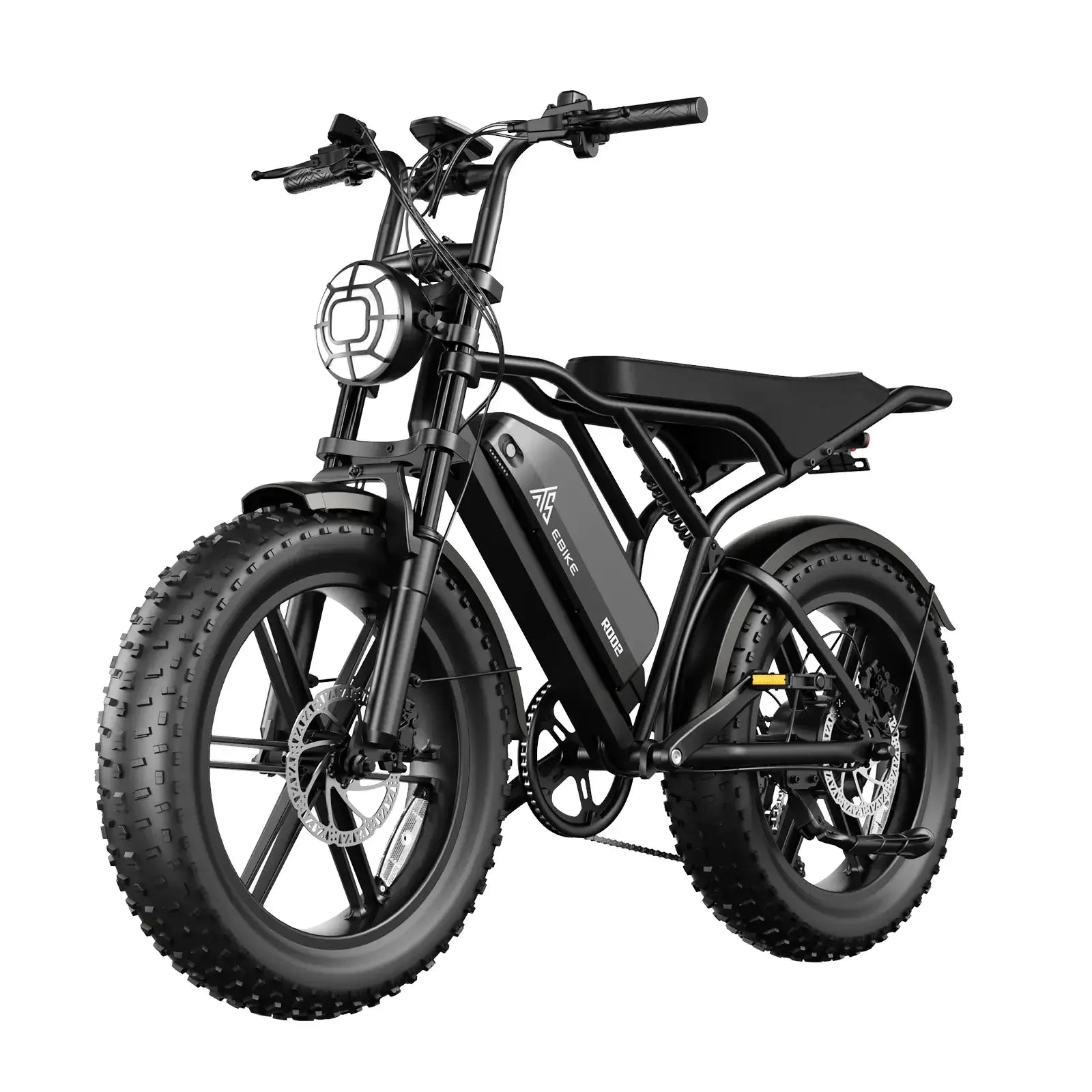
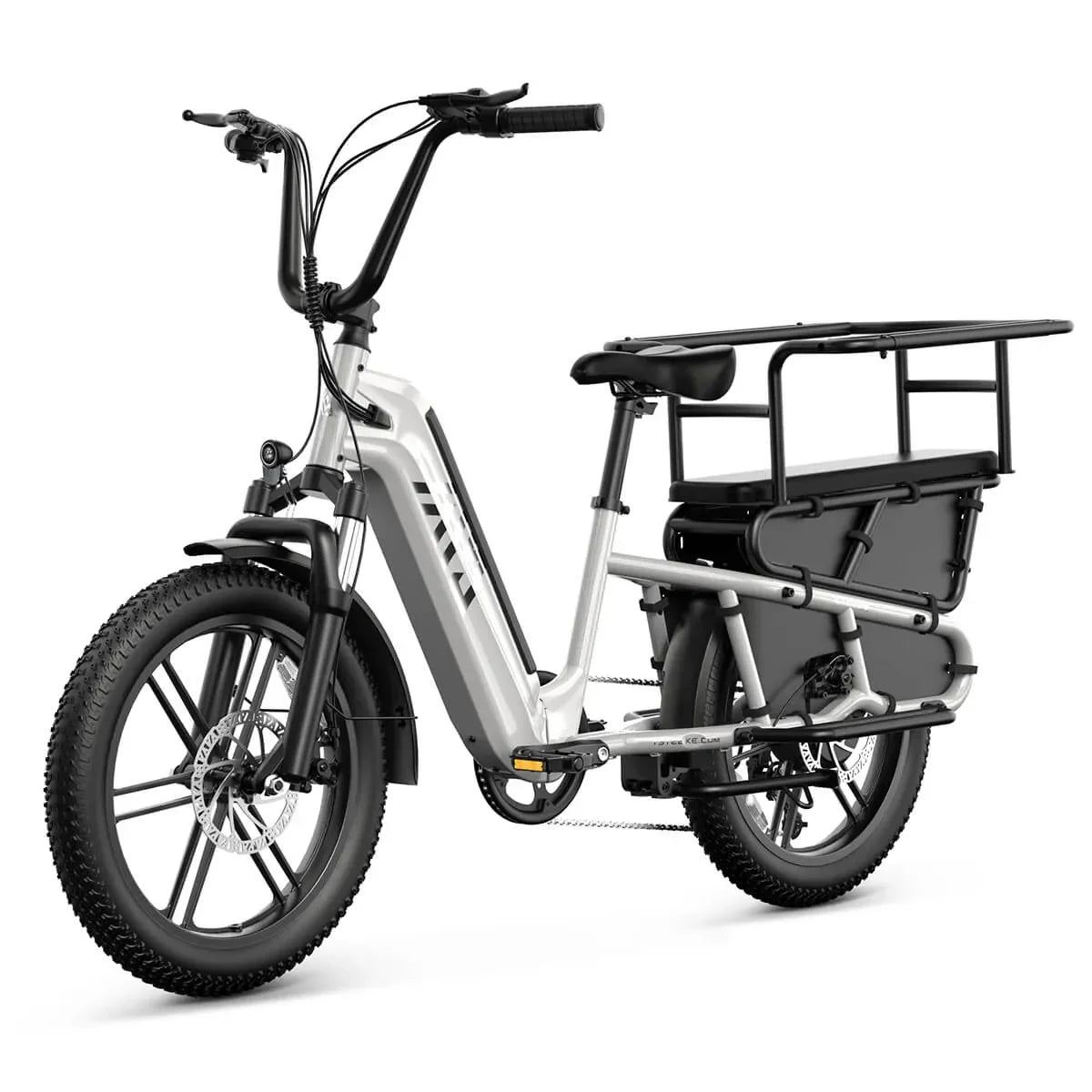
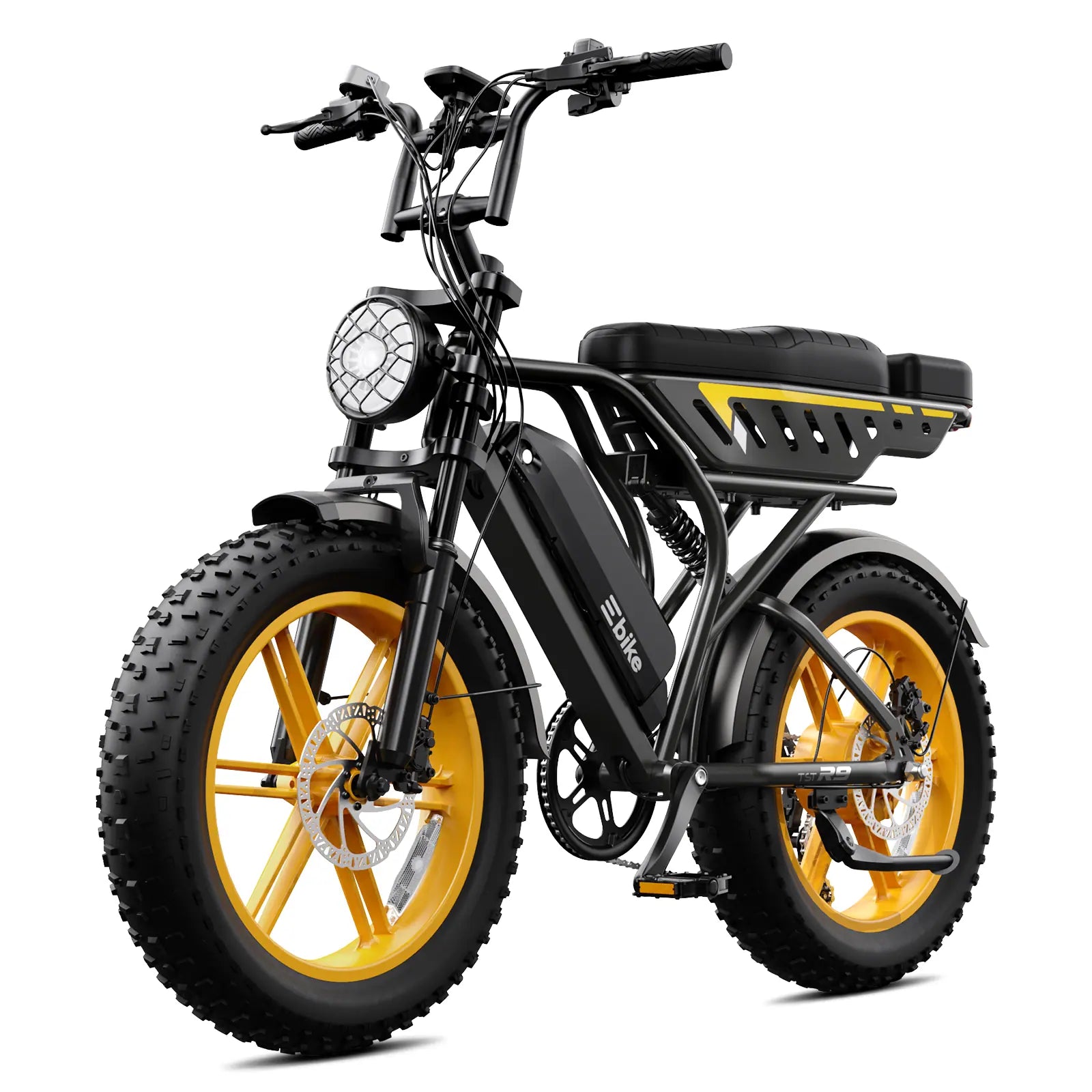
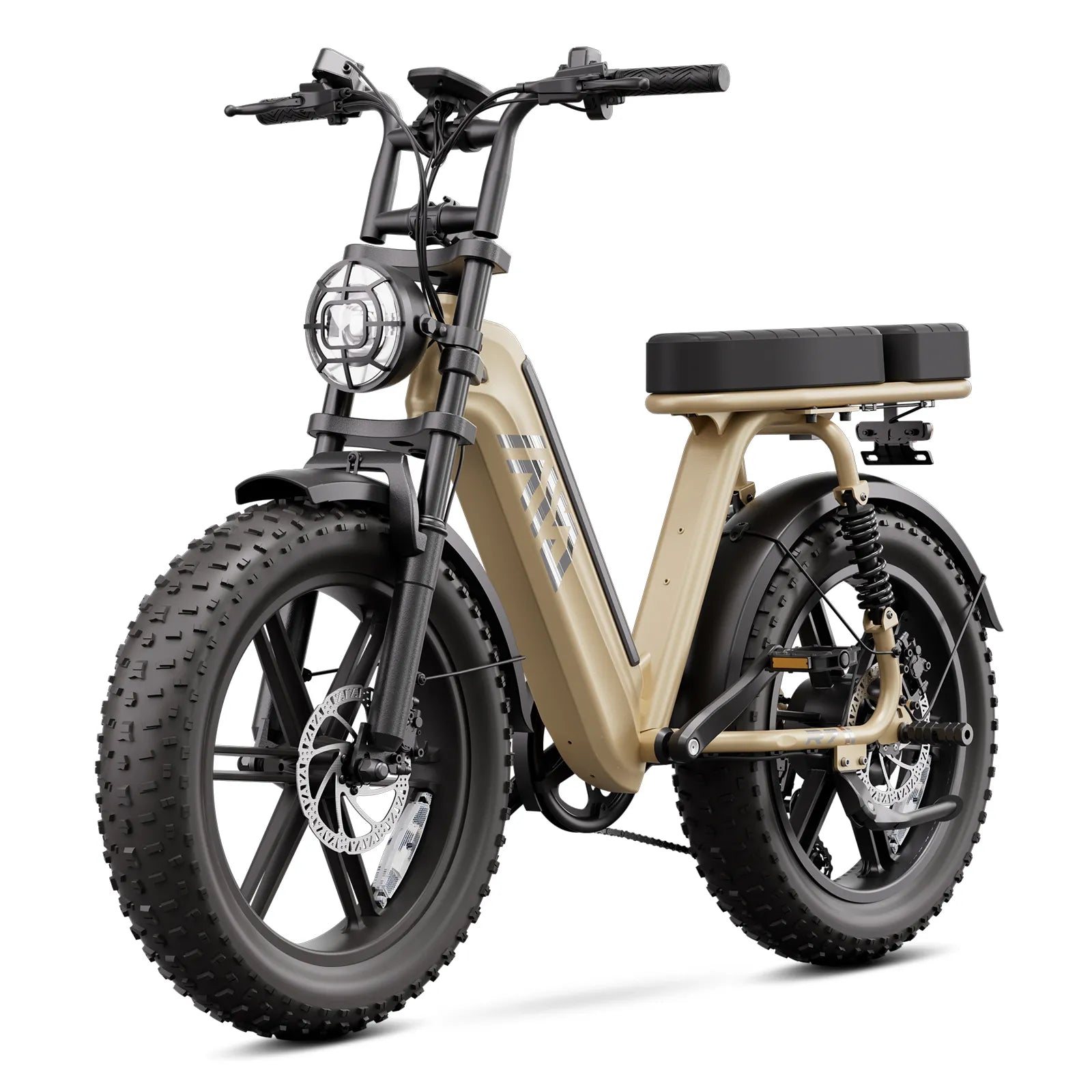
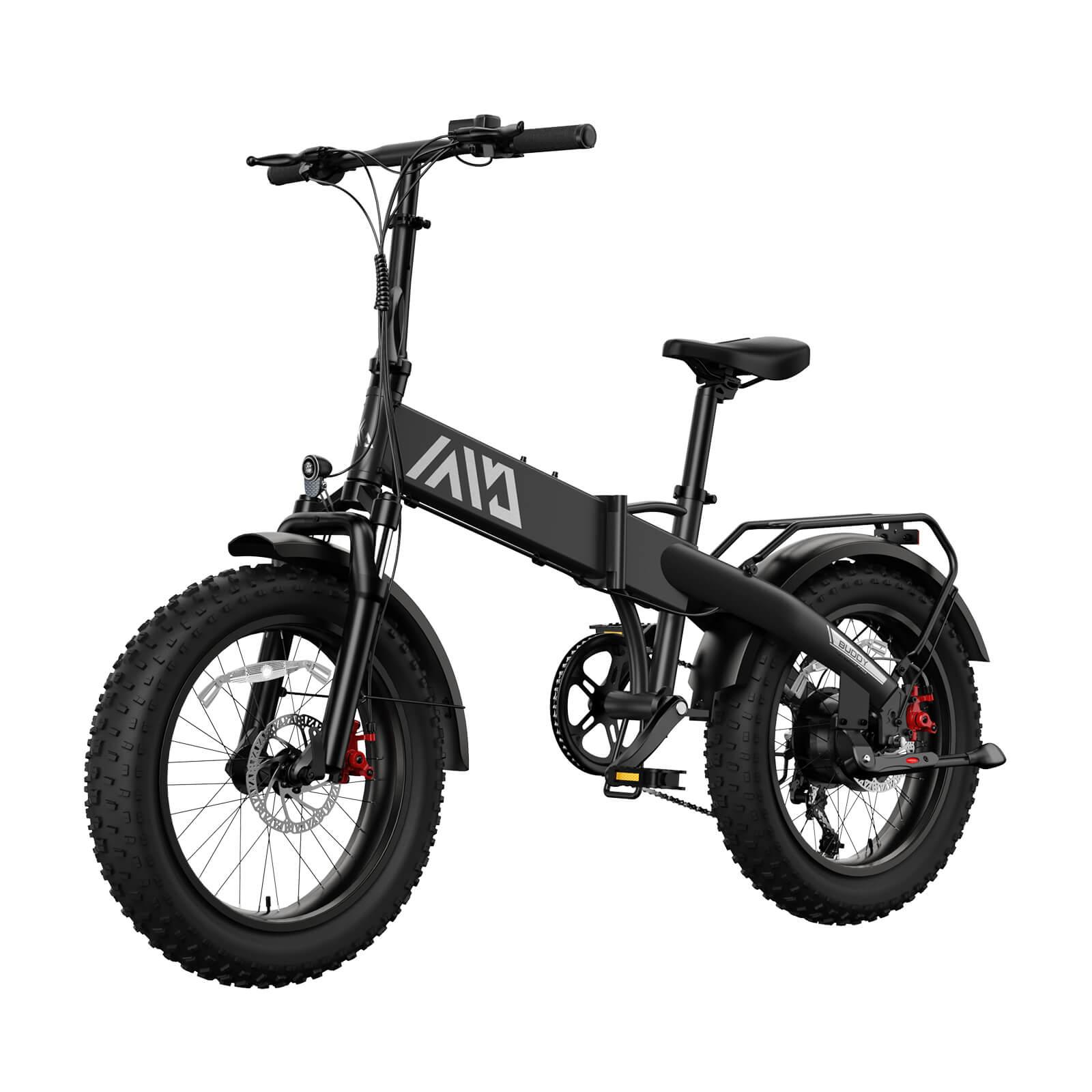

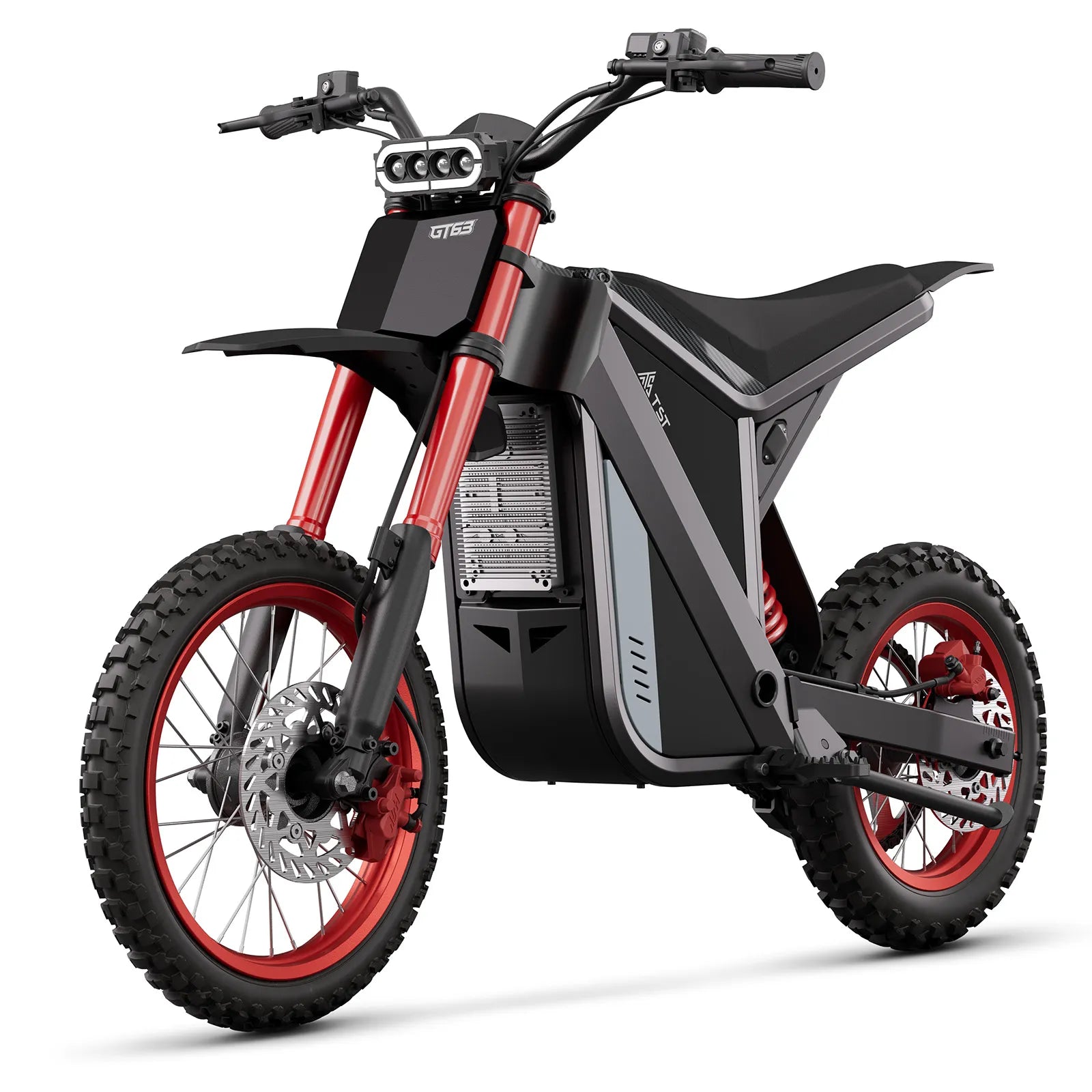
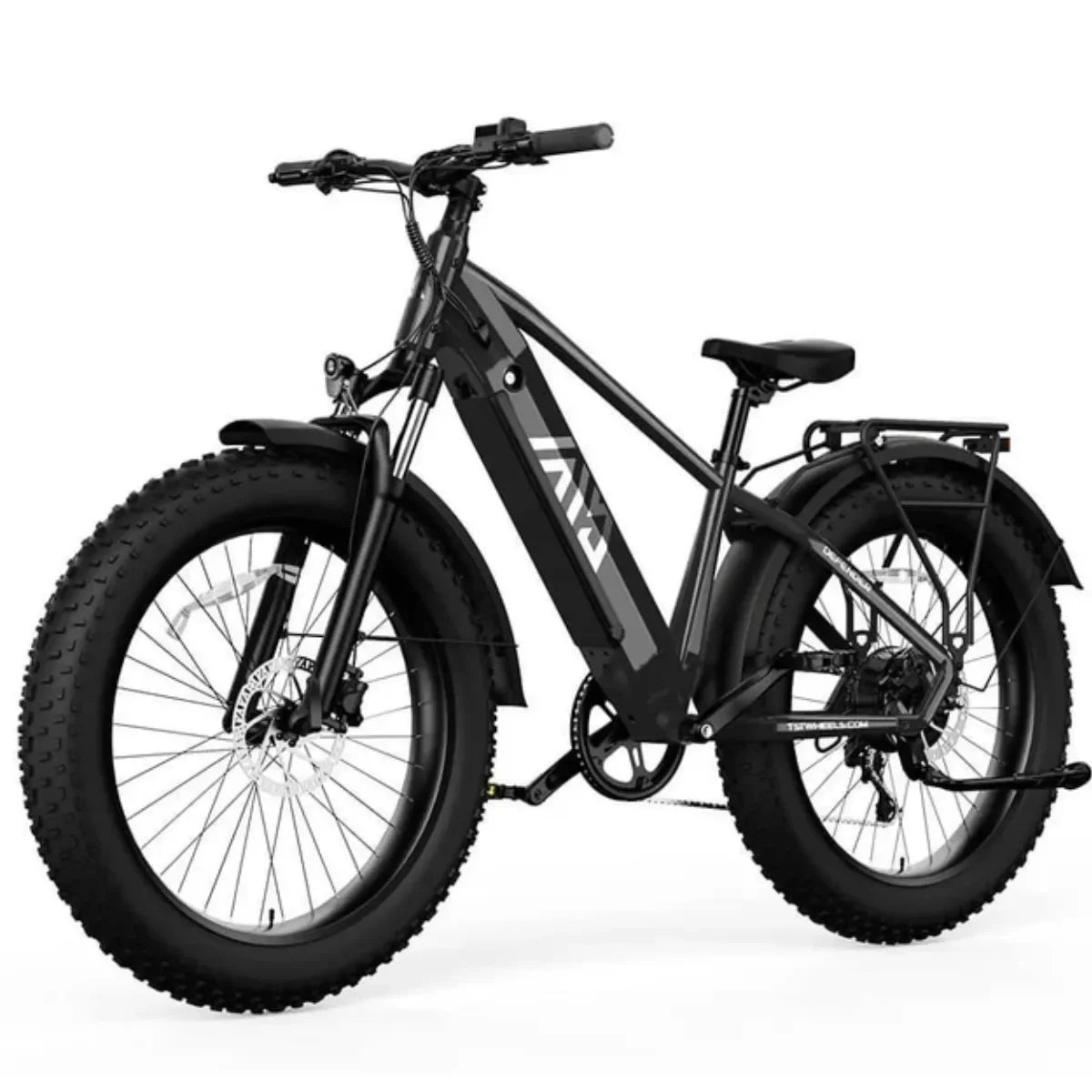
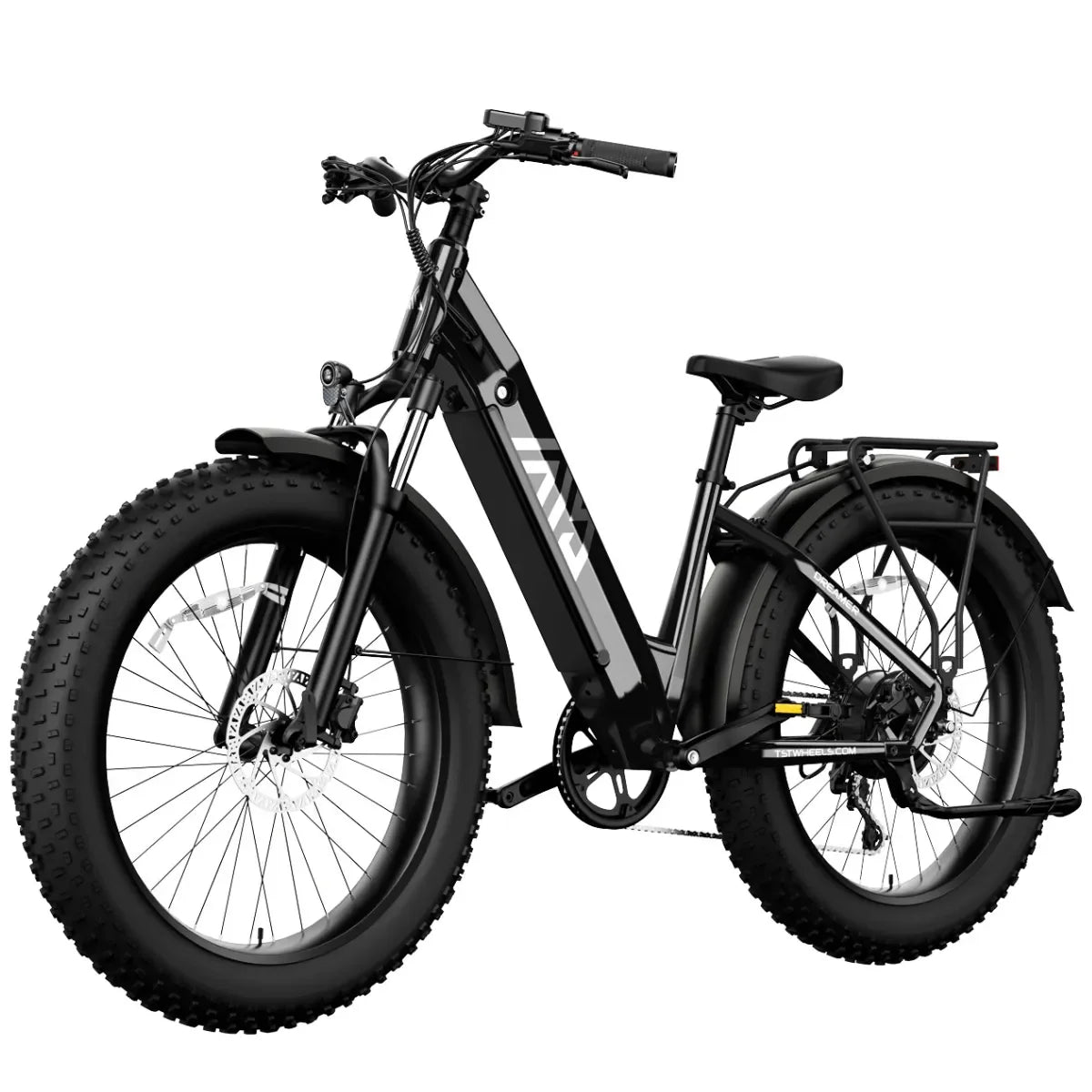
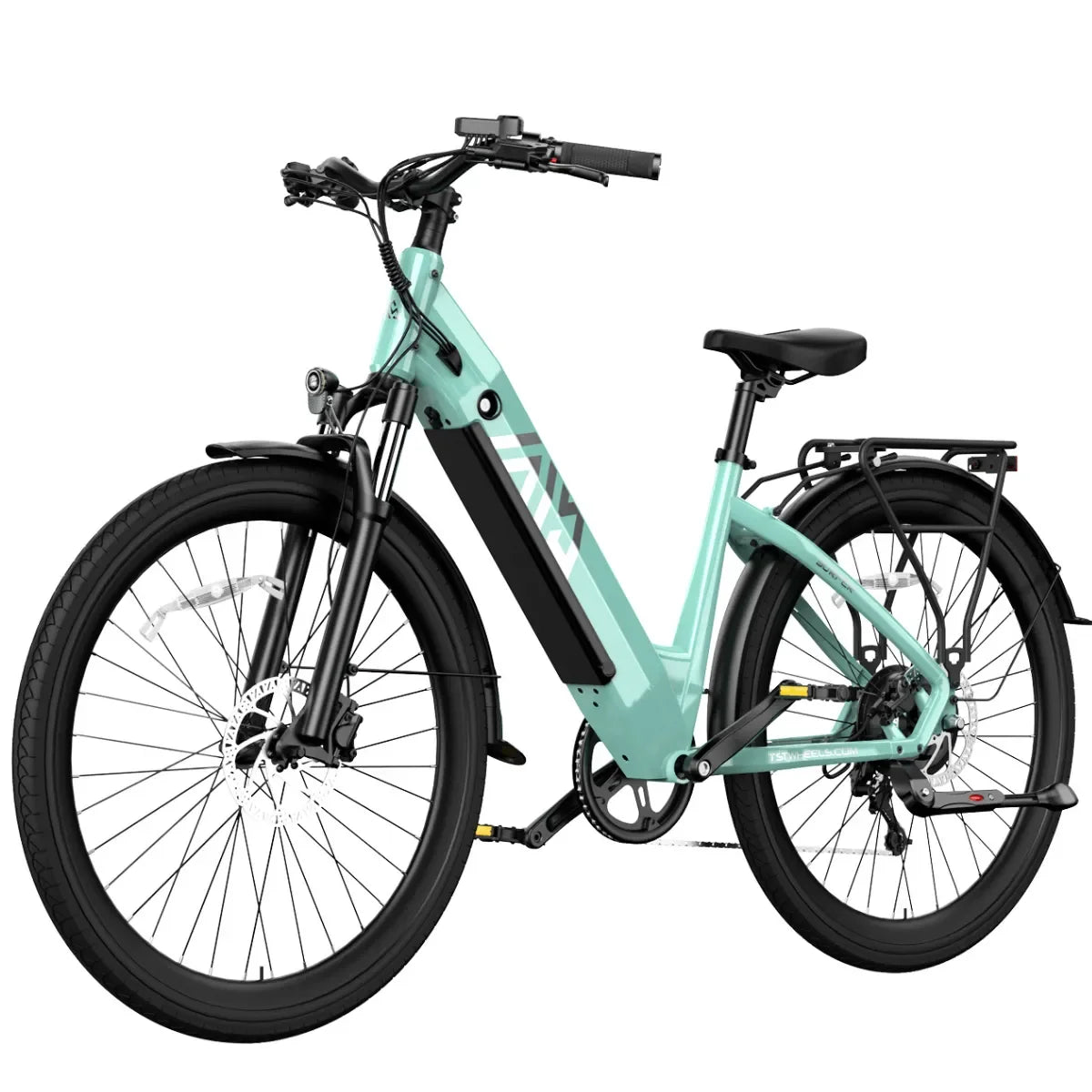
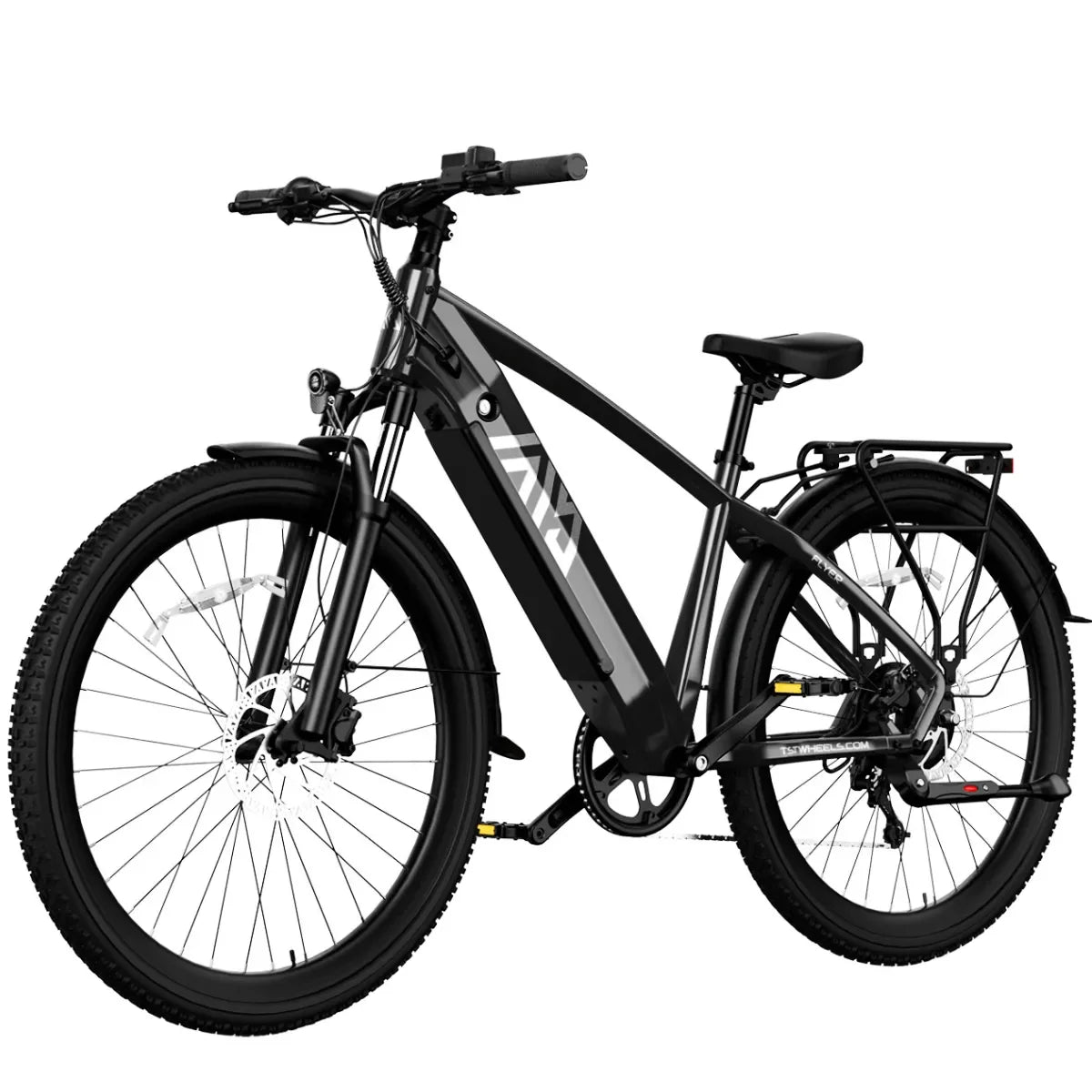
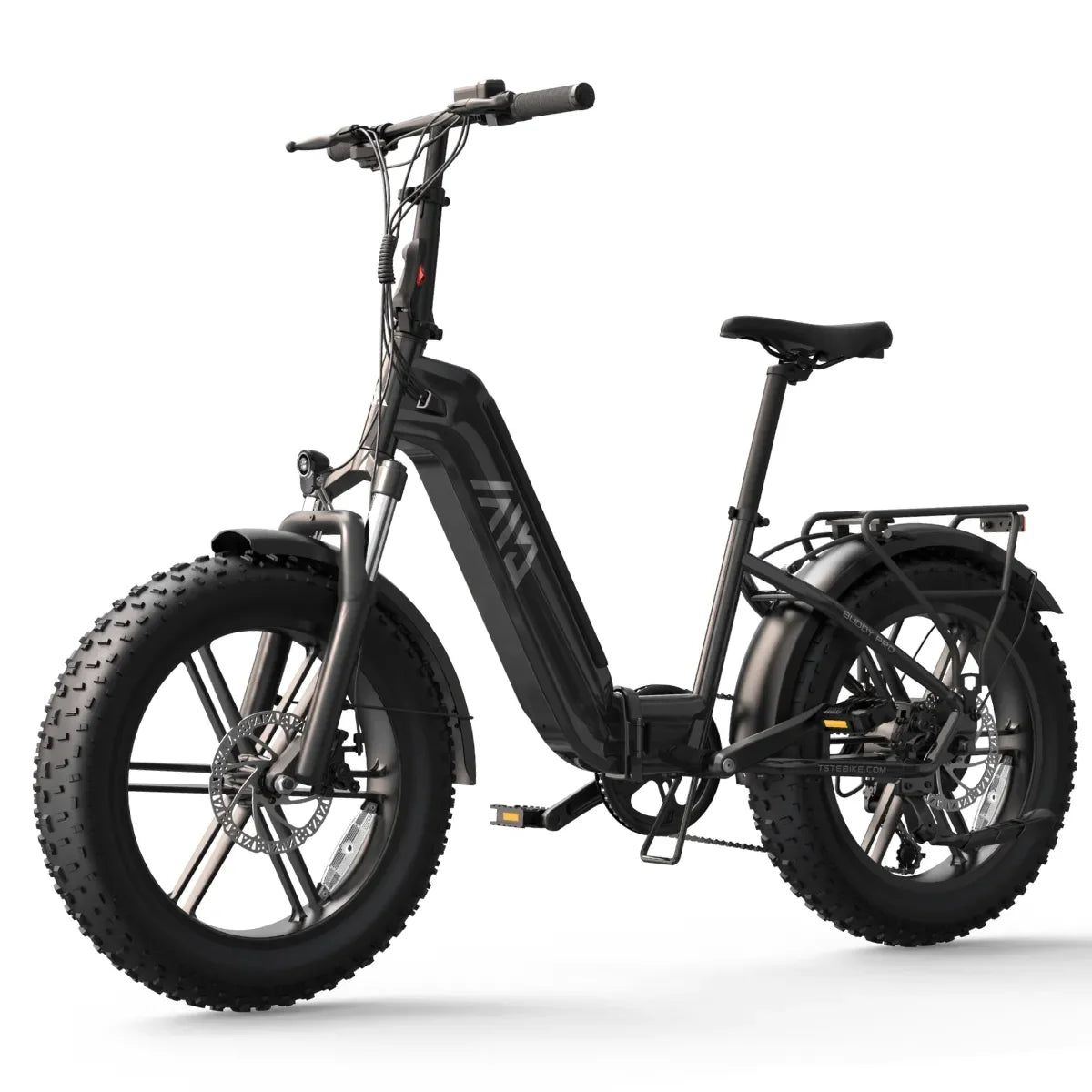
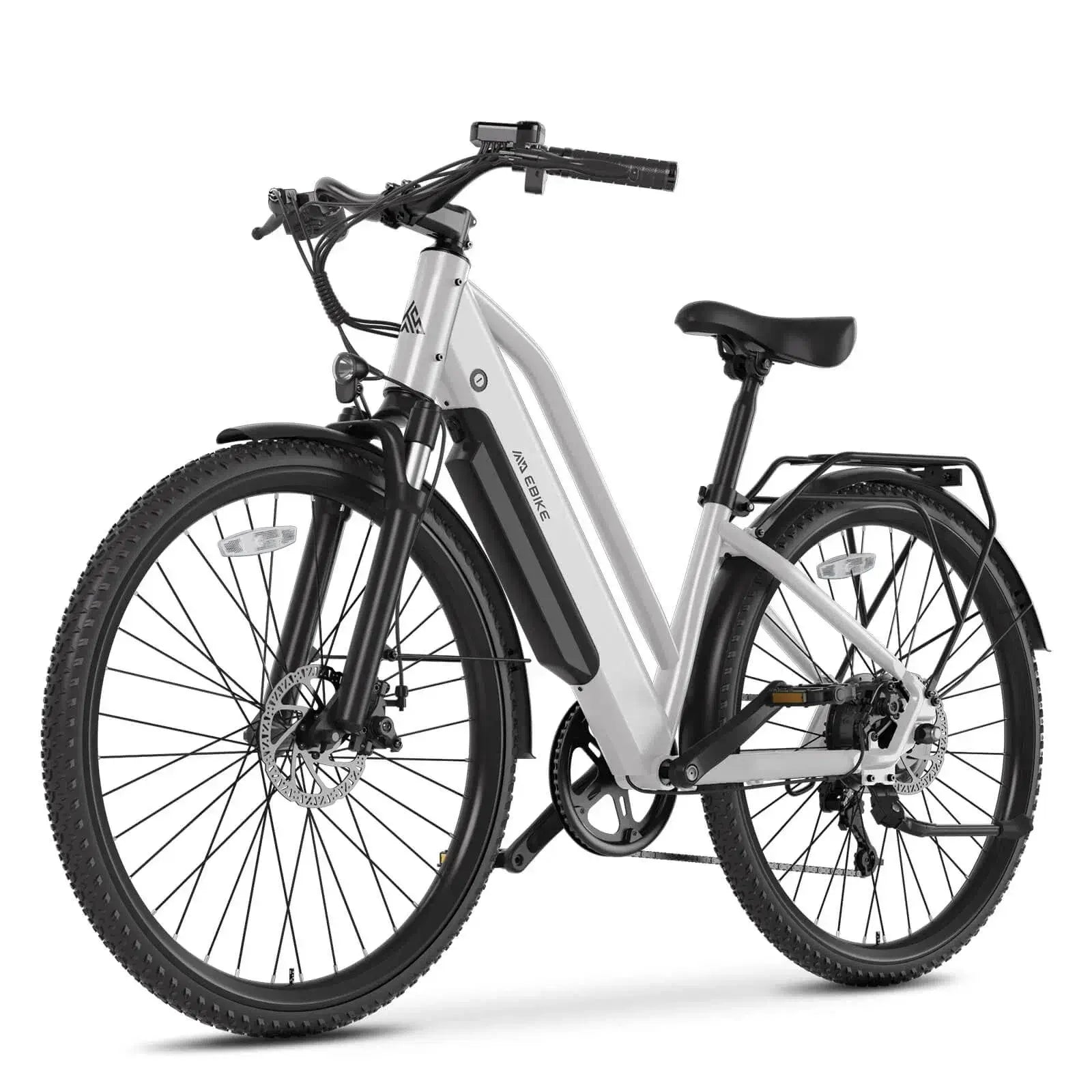

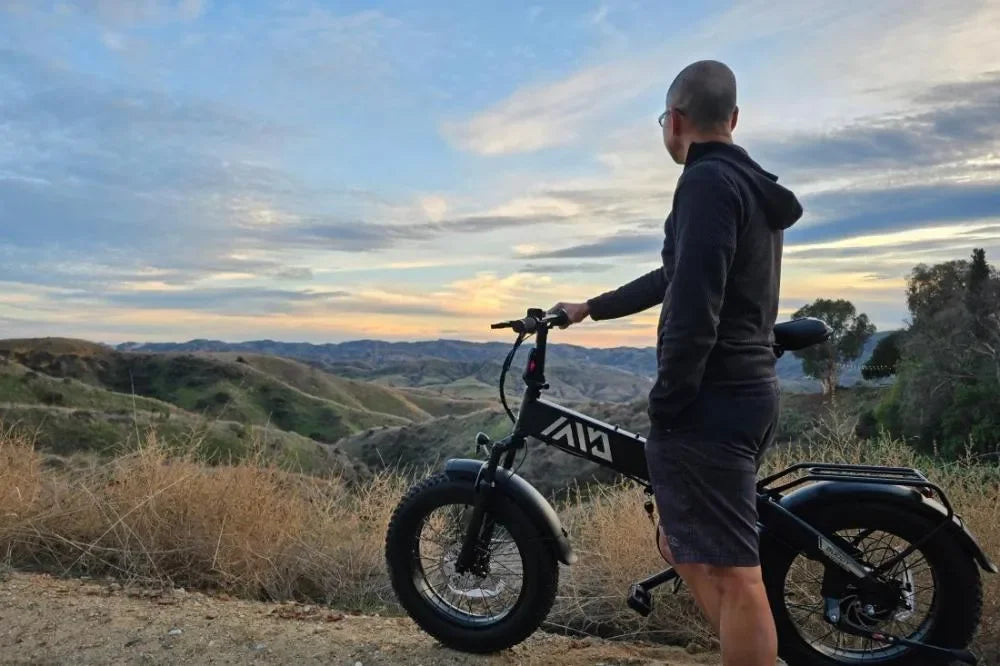
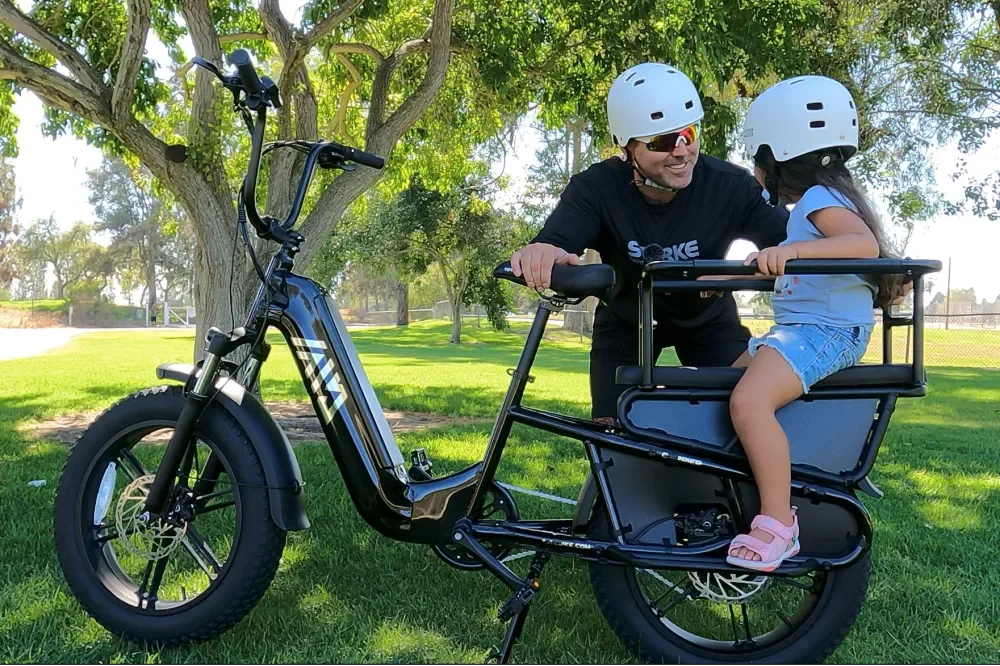


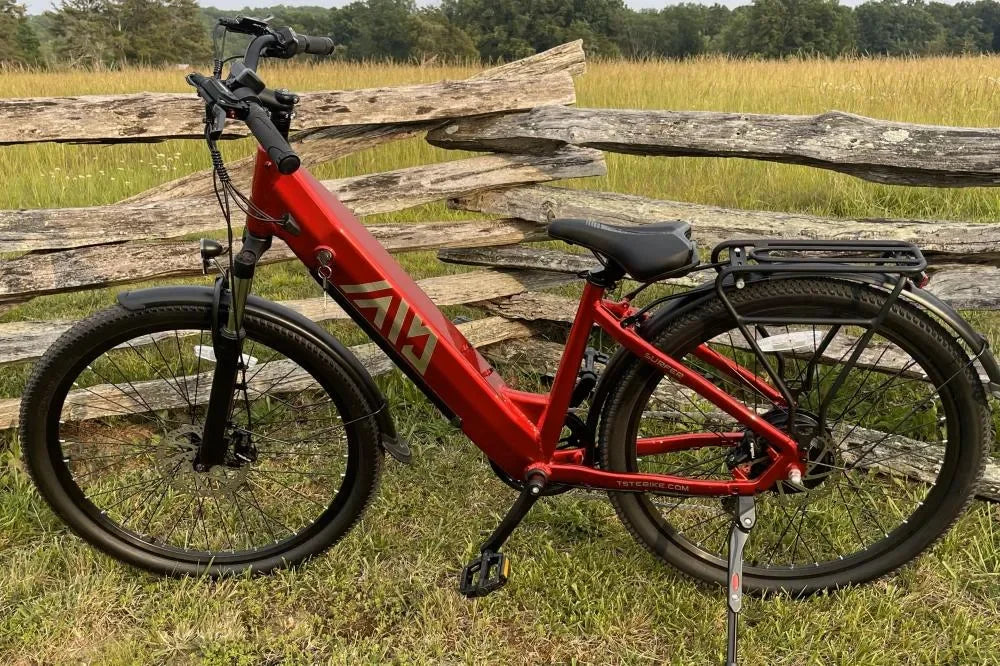
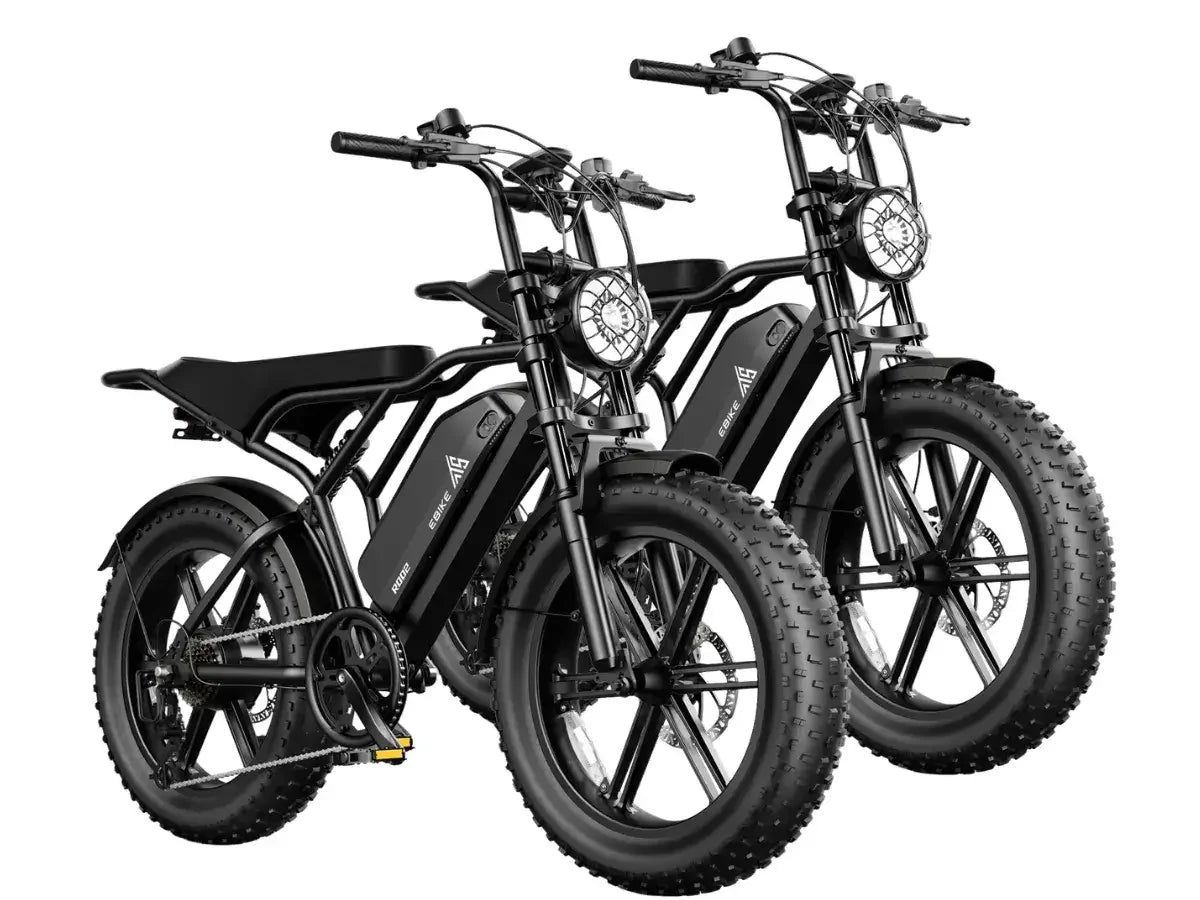
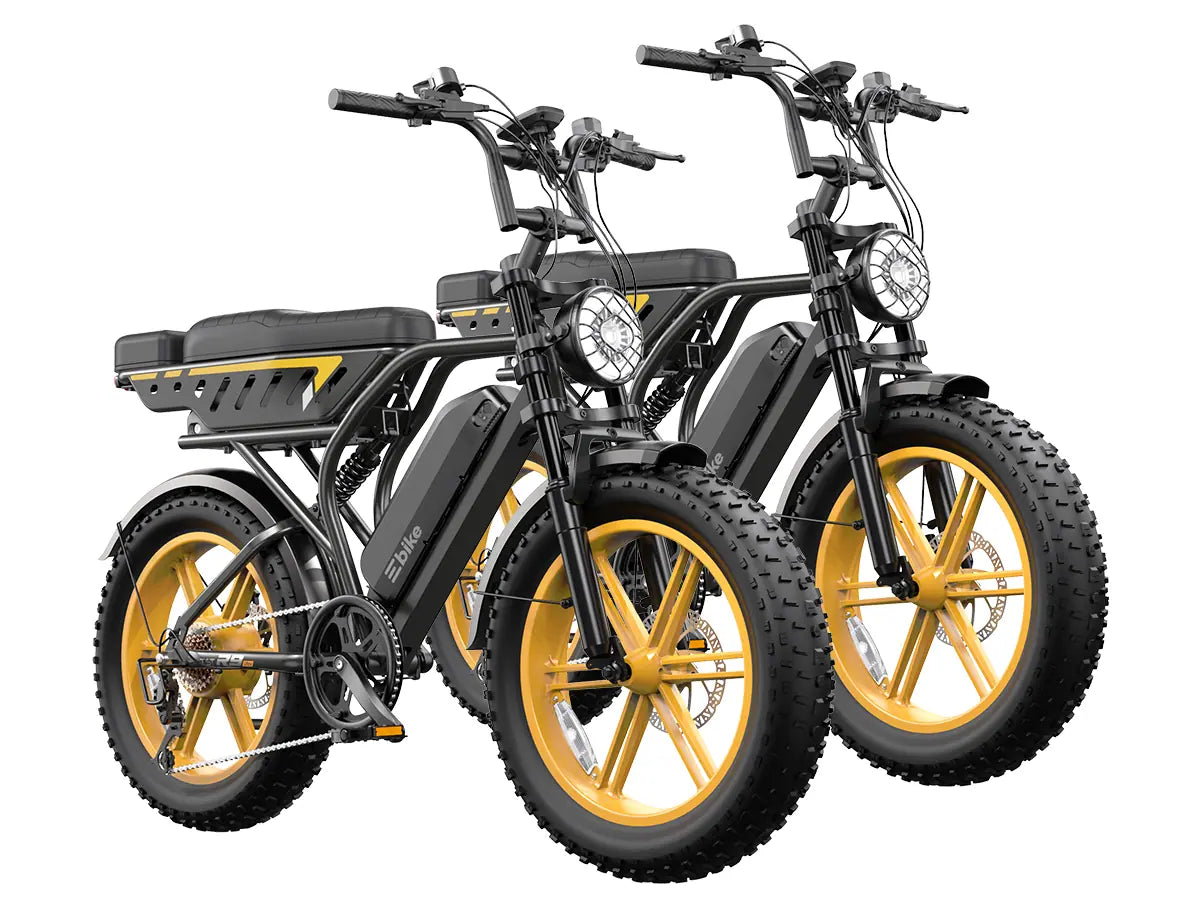
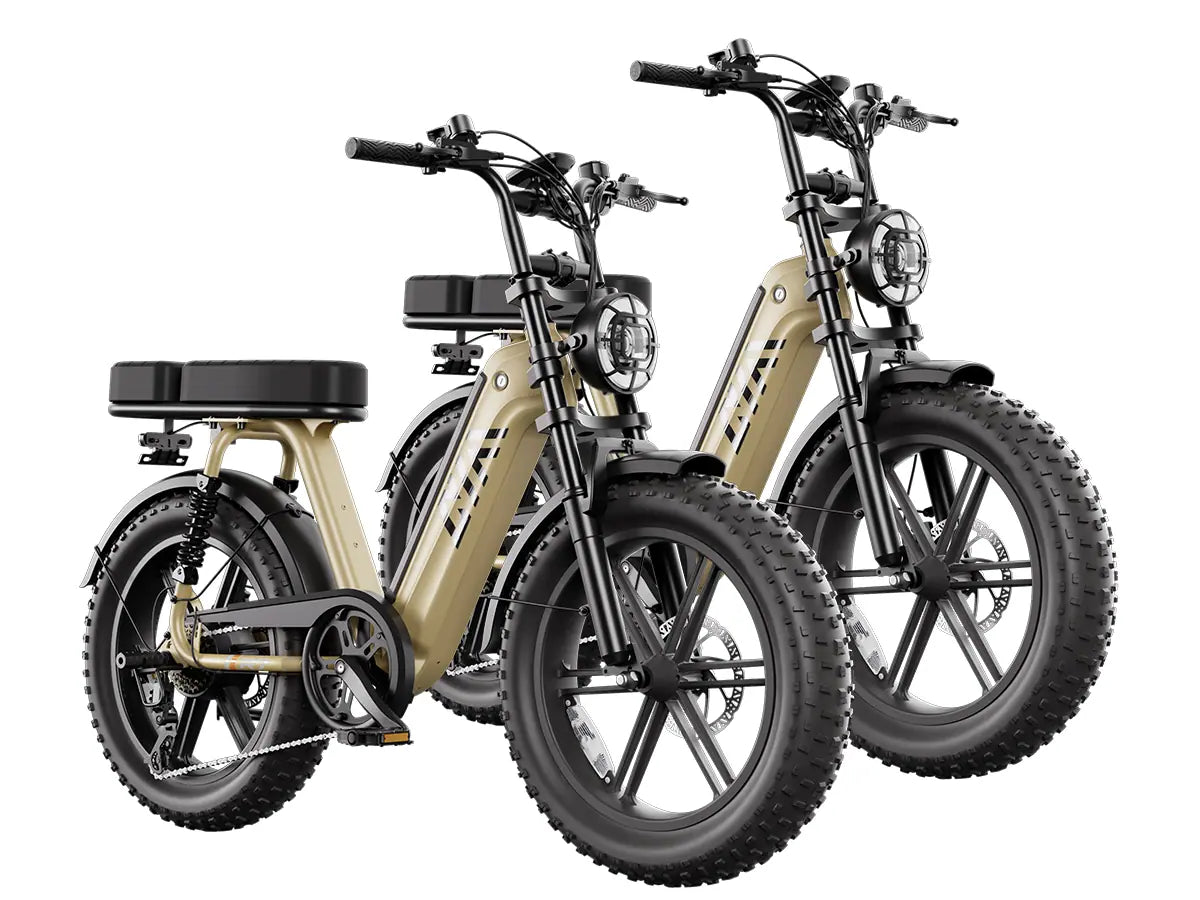
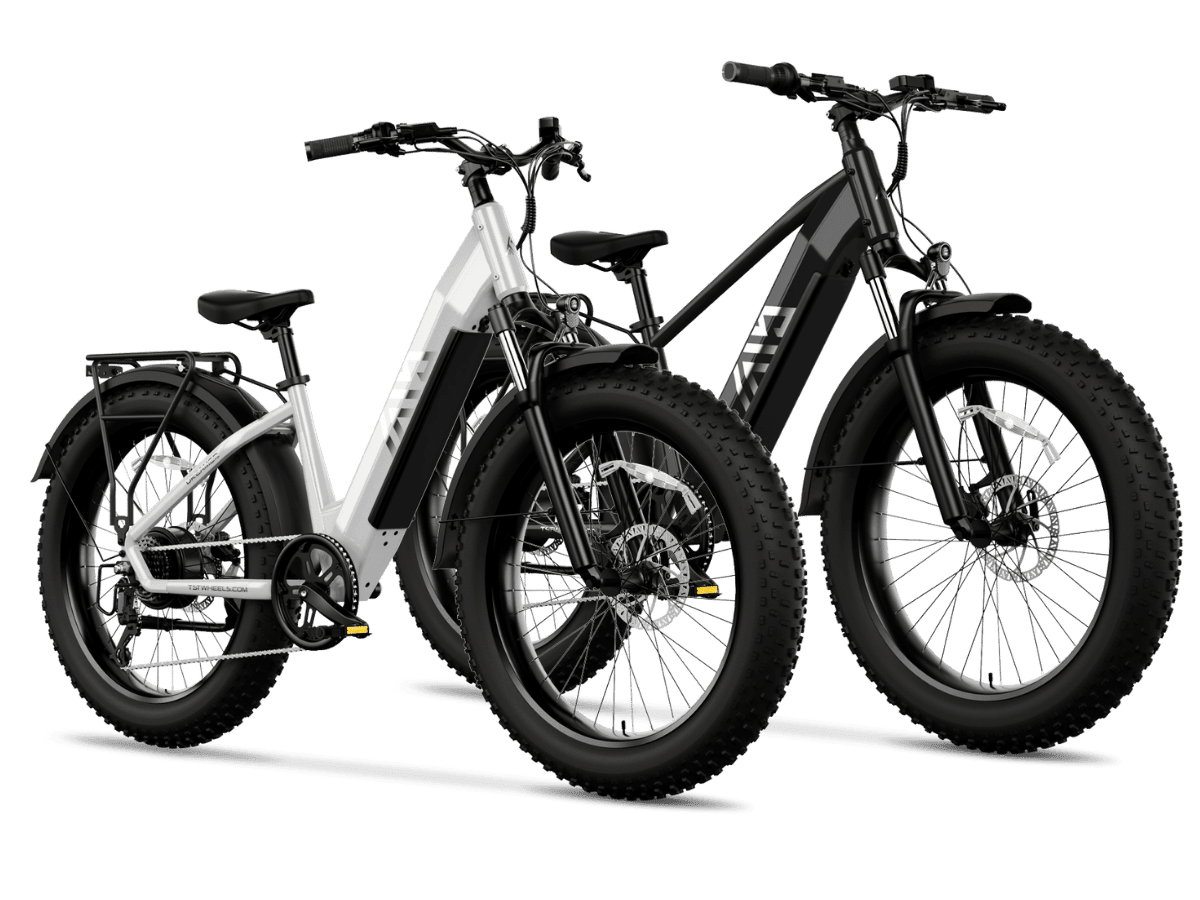
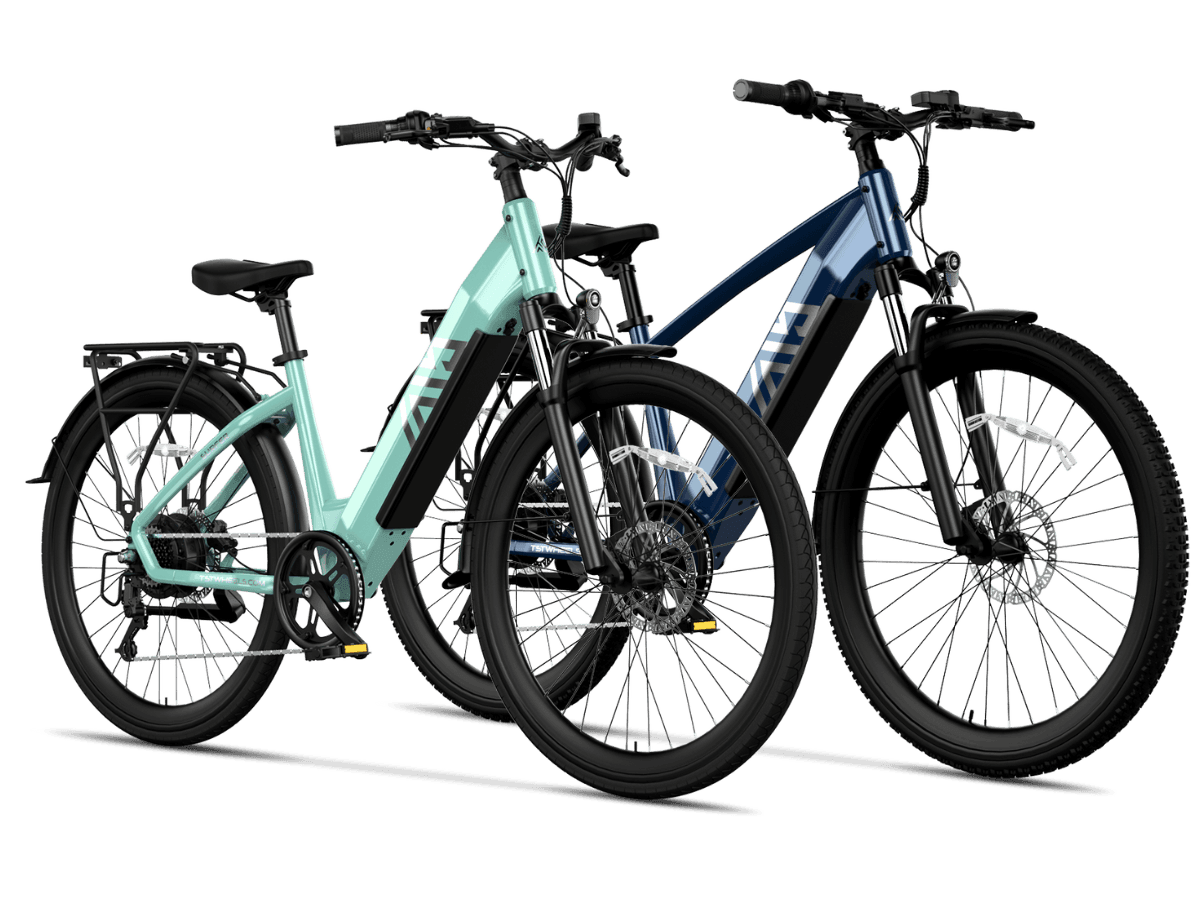
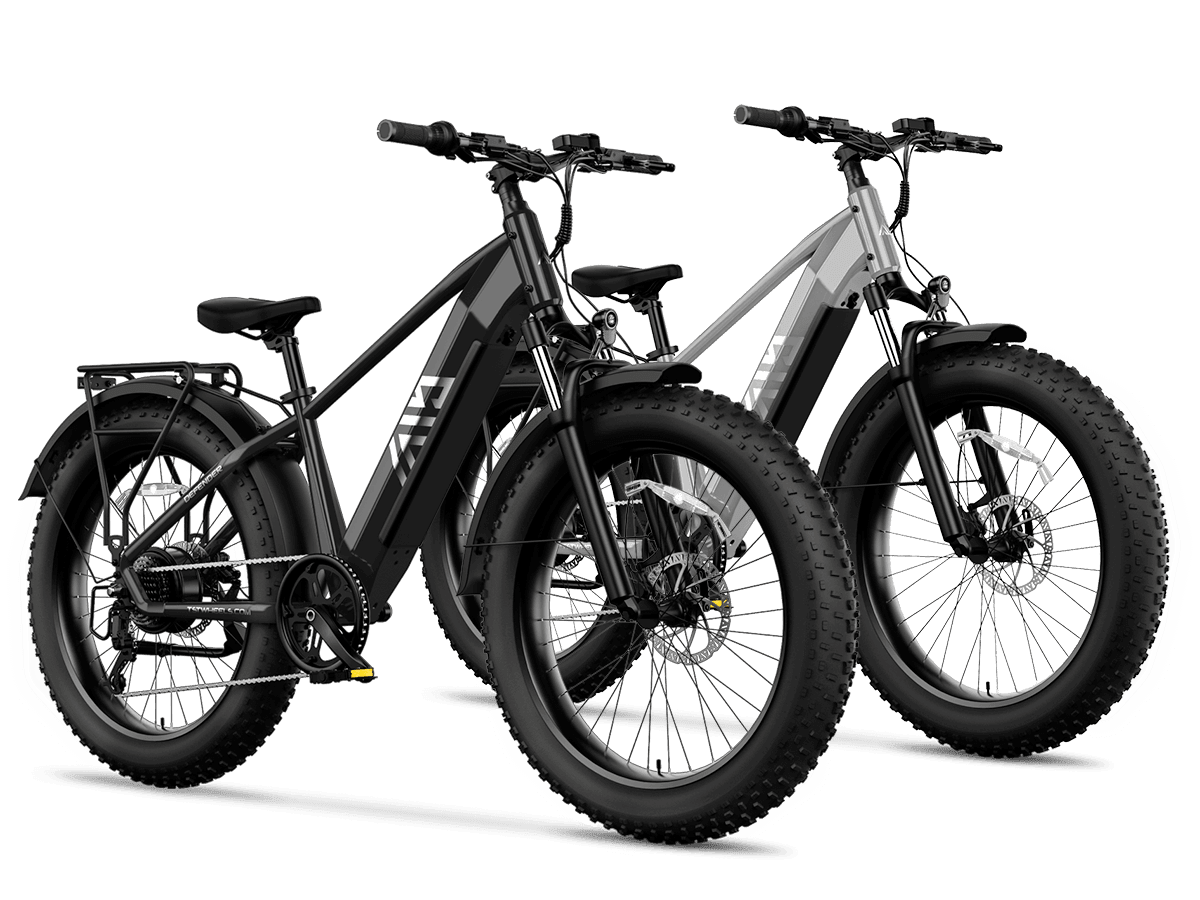
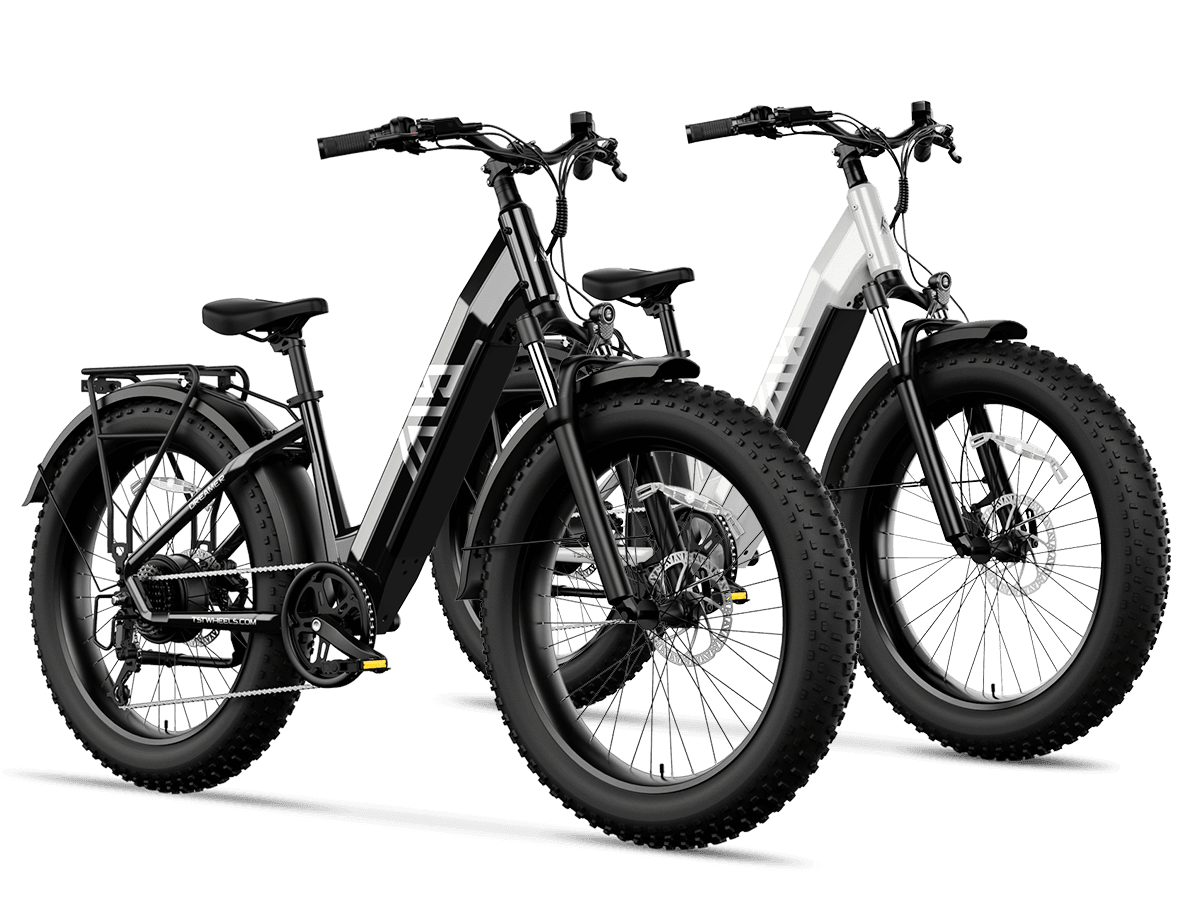
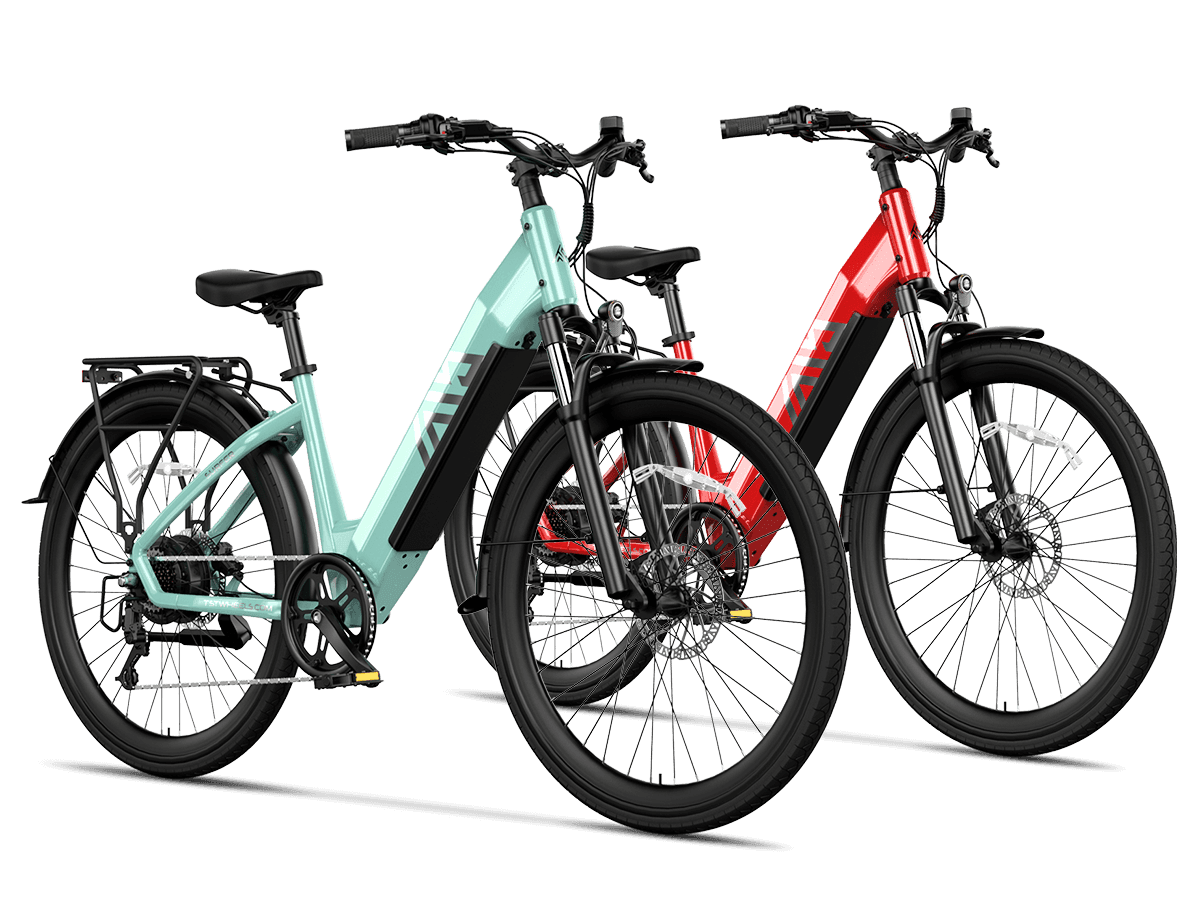
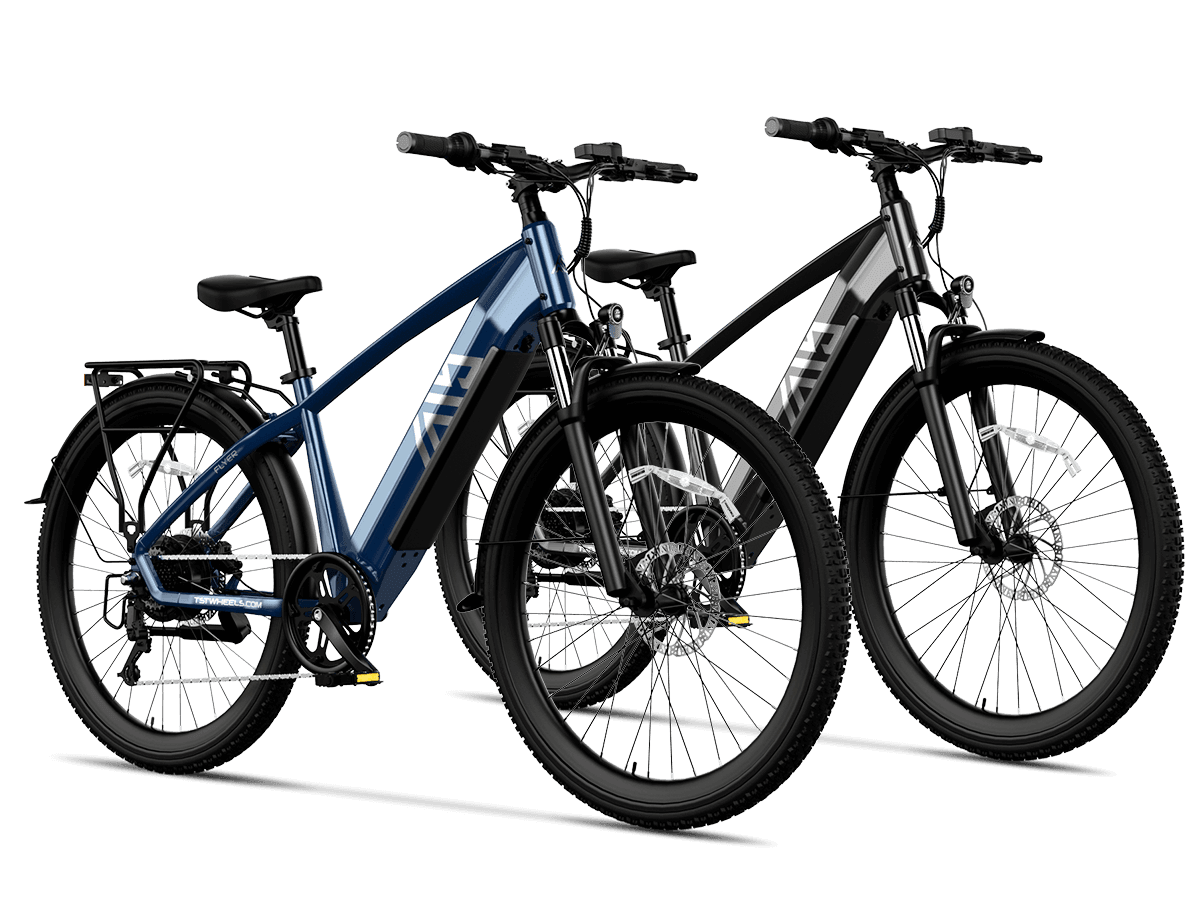
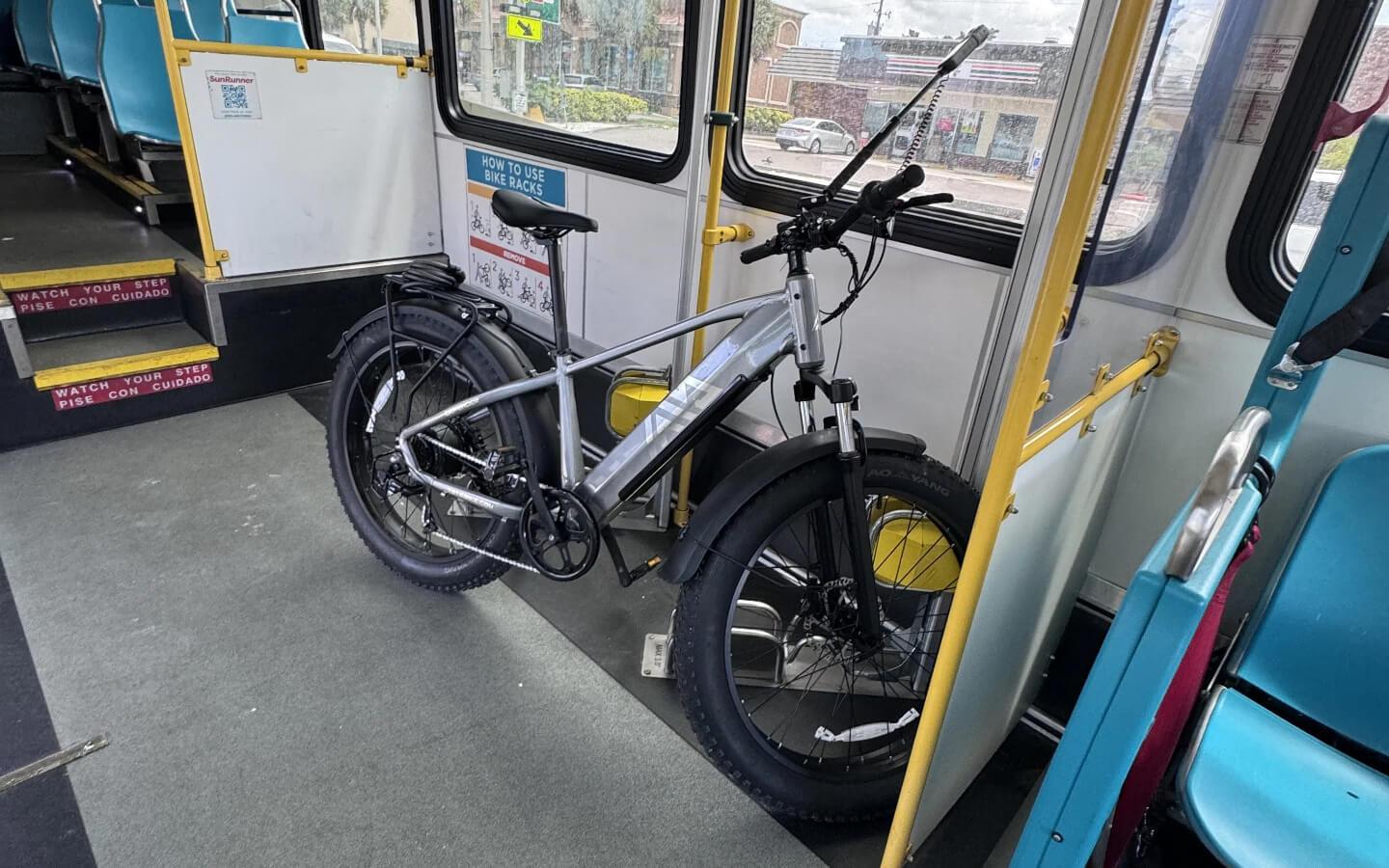


Leave a comment
All comments are moderated before being published.
This site is protected by hCaptcha and the hCaptcha Privacy Policy and Terms of Service apply.